Newsletter 23 May 2022
Environment: What’s Up in GENeva | 23 – 29 May 2022

The Geneva Environment Network’s weekly newsletter includes the latest information on the global environmental agenda, main events, job vacancies, as well as other useful resources and updates. Stay tuned and follow us also on Twitter, Facebook, LinkedIn, Youtube, or visit our website regularly for additional updates.
Image of the week | Session on Subsidizing Fossil Fuels in Times of High Energy Prices: Fossil Fuel Subsidy Reform in Trade and Climate Discussions. © UNEP/GEN, Pablo Arturo Lopez Guijosa, International Environment House II, 16 May 2022.
Geneva Blue Talk on Fisheries Subsidies
Last week, members of the World Trade Organization gathered for “Fish Week”, where all members further expressed a desire for an effective and ambitious outcome at the 12th Ministerial Conference (MC12), scheduled to take place in Geneva from 12 to 15 June 2022. The chair, H.E. Amb. Santiago Wills of Colombia, reported to members on the progress made on Friday mentioning that to reach an agreement before MC12, we must get this done not later than the week of 30 May, which he sees as the “Fish Decision Week”.
Over 180 organizations delivered a joint statement to WTO Director General, Ngozi Okonjo-Iweala, calling for MC12 to mark the end of subsidies that drive overfishing. Indeed, nearly 90% of global marine fish stocks are now fully exploited, overexploited, or depleted, and an estimated $22 billion is spent worldwide on subsidies that directly contribute to overfishing.
Last week also saw the launch of the Geneva Blue Talks, a series of events convened by Portugal, Kenya and the Geneva Environment Network in order to bridge Geneva and Lisbon ahead of the 2022 UN Ocean Conference (UNOC). In the run-up to UNOC and MC12, the Geneva Blue Talks will dive into this important and timely topic with an event on “New Disciplines on Fisheries Subsidies to Achieve SDG14 and Improve Ocean Governance”. This session will provide an overview of the status of global fisheries and the role of subsidies, as well as the ongoing negotiations and expectations for upcoming international meetings. As governments are expected to adopt an agreement at MC12, the UN Ocean Conference could be an excellent opportunity to celebrate the successful conclusion of the talks and a major step towards the fulfillment of SDG target 14.6. → Register and join us on Tuesday 24 May at 15:00 CEST, either in person at the International Environment House or online.
Advancing Science on Climate Tipping Points
Over the past decades, the IPCC reports has played a key role in synthesizing the best available science on the causes of climate change, its impacts, and possible pathways to adapt to and mitigate them. The latest contributions from WGII and WGIII to the 6th Assessment Report inform decision makers about the consequences of and possible solutions to climate change, while building momentum for stronger commitment at the upcoming UN Climate Change Conference (UNFCCC COP27), scheduled to take place in in Sharm El-Sheikh, Egypt, in November 2022.
Meanwhile, scientific information on large-scale singular events, tipping points and irreversibilities remains scattered. Tipping points in the climate system refer to thresholds that can occur as a consequence of human induced climate change, and these lead to changes that are abrupt, high-impact, large-scale and often irreversible. This lack of a comprehensive assessment on the issue hinders an overview of the state of knowledge and limits decision-making in accordance with Article 2 of the UNFCCC and Art. 2.1(b) of the Paris Agreement. Therefore, Switzerland is proposing to elaborate a Special Report on “Climate Tipping Points and their Implications for Habitability and Resources”, to be prepared in the framework of the IPCC’s 7th Assessment Cycle, scheduled to start in 2023.
Governments participating in the IPCC, Parties to the UNFCCC and other interested stakeholders, are invited to discover the initiative and ask their questions at the hybrid event “Climate Tipping Points, Irreversibility and their Consequences for Society, Environment and Economies | Switzerland’s Proposal for an IPCC Special Report”. The event will explore how the crossing of tipping points in the climate systems may have important societal, environmental and economic impacts across the globe, including on food security, health and migration. → Register and join us on Wednesday 25 May at 10 CEST, either in person at the International Environment House or online.
The WMO State of Global Climate report 2021, launched on 18 May, revealed that four key climate change indicators set new records last year, and referred also to changes and impacts that are irreversible. This is another clear sign that human activities are causing planetary scale changes on land, in the ocean, and in the atmosphere, with harmful and long-lasting ramifications for sustainable development and ecosystems.
Boosting the Energy Transition
The OFF of the Assises de la transition énergétiques, organized by the Grand Genève, continues this week with a vast programme of activities for experts and the wider public alike. Last week, we discussed the important question of Fossil Fuel Subsidy Reform in Trade and Climate Discussions, with experts from IISD, UNEP, WTO and Oil Change International, as well as representatives from New Zealand and Costa Rica. If you were not able to join, you can catch up on the discussion by watching the recording, reading the summary or checking out the key highlights on Twitter.
This week, sustainable energy will also be on the spotlight in Geneva with the departure of the Climate Pioneer World Tour, featuring the Solar Butterfly, a self-sufficient and solar-powered vehicle led by Louis Palmer, UNEP’s Champion of the Earth in 2011. The Solar Butterfly will spread its wings and start its world tour to raise awareness about climate change on Monday 23 May, from Place des Nations, at 10:00 CEST, for a four-year journey across six continents.
Health and the Environment
The 75th World Health Assembly (WHA75), the first in-person Health Assembly for over two years, is convening in Geneva from 22 – 28 May under the theme “Health for peace, peace for health”. In a world threatened by conflict, inequities, the climate crisis and pandemics, WHA75 will stress the importance of building a healthy and peaceful planet by harnessing science, data, technology and innovation.
Ahead of WHA75, a new landmark study – Pollution and health: a progress update – published in the Lancet Planetary Health last week, revealed that pollution is responsible for one in six deaths worldwide, 9 million deaths per year, and thus remains the largest environmental risk factor for disease and premature death. In particular, deaths from these modern pollution risk factors, such as air pollution and toxic chemical pollution, have increased by 66% since 2000. Noting little progress against pollution despite efforts by committed agencies, the authors highlight recommendations to address this planetary threat, jointly with the crises of climate change and biodiversity. These include the establishment of a globally supported science-policy interface to inform intervention, influence research, and guide funding. The findings of the reports were presented by the Global Alliance on Health and Pollution at the World Heart Summit in Geneva, on Sunday 22 May.
Peace and the Environment
Peace is not only essential for health, but also for achieving all the SDGs, including for our common environmental goals. In the run-up to Stockholm+50, Ecosystem for Peace is highlighting the importance of inclusive and just peace in order to sustain a healthy planet or achieve prosperity for all. Recognizing that peace and conflict sensitivity are indeed inextricably linked to environmental policy, their insightful article “The Missing Peace: Making Sustainable Development Work” highlights four key opportunities and concrete recommendations for integrating peace into sustainable development. Peace experts in Geneva and beyond are actively engaged in building momentum ahead of Stockholm+50 and creating bridges between the environmental and peacebuilding communities. → Learn more about their activities.
This week, some Geneva-based actors are also engaged in the Stockholm Forum on Peace and Development. ILO, together with the Indigenous Major Group for Sustainable Development and the Right Energy Partnership with Indigenous Peoples, is facilitating a online roundtable session on indigenous peoples, climate change and the role of decent work for a just and peaceful transition on 23 May at 17.30.
The PeaceNexus Foundation launched an environment and peace call for proposals welcoming applications from international organizations with an environmental, conservation, biodiversity protection or climate-focused mission for support on embedding conflict-sensitive approaches into their operations and organizational systems. Applicants need to fill the application form and complete a general information webform by Tuesday 21 June 2022.
World Economic Forum in Davos
Global leaders will be meeting in-person at the World Economic Forum Annual Meeting in Davos from 22 to 26 May for the first in-person meeting since the beginning of the pandemic. Various actors for the Geneva community will be taking part in the discussions in Davos to foster the dialogues on nature and climate, as one of the key themes of the forum. Many sessions will be accessible to the public through live stream. → Consult our list of relevant sessions for the global environment agenda.
What (Else) Should I Read Next?
- Briefing on the Ad Hoc Open-Ended Working Group to Prepare for the Intergovernmental Negotiating Committee to End Plastic Pollution | Geneva Beat Plastic Pollution Dialogues | 19 May 2022
This briefing gave an overview of the preparations for and expected outcomes of the OEWG meeting, taking place in Dakar on 30 May to 1 June. The Secretariat and host country shared practical information regarding the programme and logistics, which were complemented by perspectives from Members States, civil society organizations and the private sector on the process toward a global agreement on plastic pollution.
- La Genève Internationale et l’urgence climatique | Fondation pour Genève | Mai 2022 | In French
Michel Jarraud, Secrétaire général émérite de l’Organisation météorologique mondiale (OMM), dresse un état des lieux de la gouvernance du changement climatique au sein de la Genève Internationale. Ce bulletin présente à la fois les interactions politiques et scientifiques qui se nouent à Genève autour des questions climatiques, et des suggestions pour renforcer le rôle de Genève sur ces questions et favoriser l’émergence de solutions.
- Blue BioTrade in Grenada: Developing value for the sustainable trade and production of queen conch in the Eastern Caribbean | UNCTAD, CITES, OECS and EU Commission | 17 May 2022
The queen conch is a highly appreciated seafood delicacy, also used in therapeutic products and handicrafts, and is a CITES Appendix II-listed species. In October 2020, UNCTAD, CITES and OECS launched a pilot project to test the application of the revised UNCTAD BioTrade Principles and Criteria in order to promote a sustainable blue economy for queen conch in three Caribbean countries. This case study shows that it is possible to link trade with sustainable and legal use of marine species, and formulates recommendations. - Shifting Towards Circular Policy Framework in Developing Countries: Taking Stock and Getting Inspired | CUTS International Geneva | 11 May 2022
This note explores how policy frameworks in developing and least developed countries, with a special focus on trade-related policies, are promoting circular economy. It aims to highlight some best policy practices to better support circularity, implemented by national governments, through national policy making as well as implementation of commitments taken at regional level. It provides examples from various regions across the developing world. - United global call to act on land degradation and drought concludes major UN meeting in Côte d’Ivoire | UNCCD | 20 May 2022
UNCCD COP15 concluded in Abidjan, adopting 38 decisions, including on tenure, migration and gender, that highlight the role of land in addressing multiple crises. - Global Ocean and Coastal Observation: From Science to Decision-Making | Geneva Blue Talks | Portugal, Kenya & GEN | 17 May 2022
Outcomes of the first Geneva Blue Talk, focusing on data and monitoring, with the participation of WMO, UNEP/GRID, GEO, IUCN, and AIR Center.
Events
See all
Afterwork
Le OFF des Assises: Passons le cap
10 May – 05 Jun 2022
Assises Européennes de la Transition Énergétique
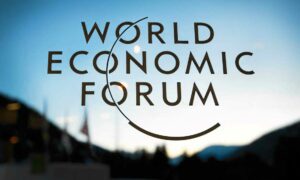
Conference
International Geneva & Environment @ World Economic Forum Annual Meeting 2022
22 – 26 May 2022
Davos & Online
WEF
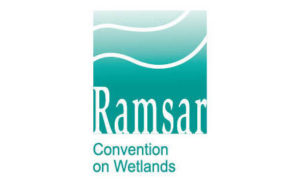
Body Meeting
59th Meeting of the Standing Committee
23 – 27 May 2022
Ramsar HQ, Gland, Switzerland
Ramsar Convention

Demonstration
Start of the World Tour of the SolarButterfly
23 May 2022 09:00 – 11:30
Place des Nations
Solar Butterfly

Conference
Environnement, climat et santé: Citoyen-nes et scientifiques, agissons ensemble!
23 May 2022 17:30 – 19:00
Uni Dufour | Espace Rencontres
UNIGE, Climate Grand-Parents Switzerland

Body Meeting
Informal Dialogue on Plastics Pollution and Environmentally Sustainable Plastics Trade (IDP)
24 May 2022 10:00
WTO
WTO
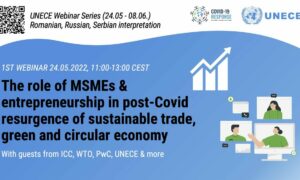
Virtual
The role of MSMEs & entrepreneurship in post-Covid resurgence of sustainable trade, green and circular economy
24 May 2022 11:00 – 13:00
Online | Zoom
UNECE

Conference
New Disciplines on Fisheries Subsidies to Achieve SDG14 and Improve Ocean Governance | Geneva Blue Talks
24 May 2022 15:00 – 16:30
International Environment House I, Room 3 & Online | Webex
Portugal, Kenya, GEN
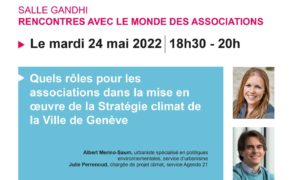
Local
Quels rôles pour les associations dans la mise en œuvre de la Stratégie climat de la Ville de Genève?
24 May 2022 18:30 – 20:00
Maison Internationale des Associations
Maison Internationale des Associations, Republic and State of Geneva

Local
Plan climat cantonal | Mise en œuvre bâtiments
24 May 2022 19:00
Coopérative Equilibre, 7 rue Soubeyran
Noé21

Afterwork
Young People driving Climate Action | Geneva SDG Community Coffee
25 May 2022 08:30 – 09:30
Maison de la Paix
Geneva 2030 Ecosystem, SDG Lab, IIED

Conference
Climate Tipping Points, Irreversibility and their Consequences for Society, Environment and Economies | Switzerland’s Proposal for an IPCC Special Report
25 May 2022 10:00 – 11:30
International Environment House II & Online | Webex
Switzerland, GEN

Virtual
Enhancing the contribution of MSMEs in the facilitation of the circular economy transition & green post COVID-19 resurgence
25 May 2022 11:00 – 00:00
Online | Zoom
UNECE
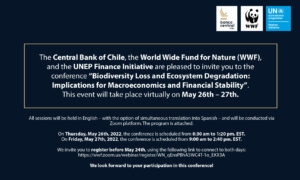
Virtual
Biodiversity Loss and Ecosystem Degradation: Implications for Macroeconomic and Financial Stability
26 – 27 May 2022
Online | Zoom
UNEP FI, WWF

Virtual
Regional workshop and validation of the OECS Blue BioTrade Action Plan for queen conch value chain in the Eastern Caribbean
26 – 27 May 2022
Online
UNCTAD
Jobs
See all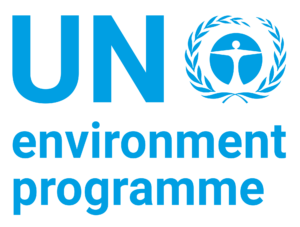
Consultant
State of Finance for Nature Coordinator Consultant
07 Jun 2022
UNEP Land Use Finance Unit

Consultant
Policy Expert on Finance for Sustainable Food Systems
07 Jun 2022
UNEP Land Use Finance Unit
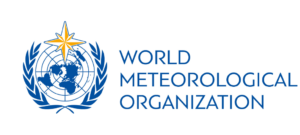
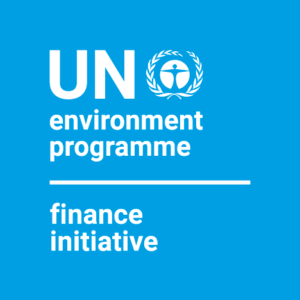



Consultant
Net-Zero Asset Owner Alliance – Engagement and Finance Tracks Consultant
25 May 2022
UNEP FI






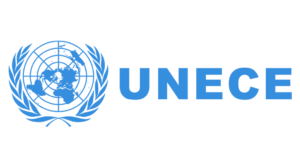
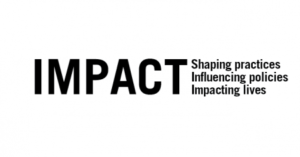
Updates
See all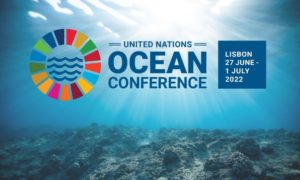
04 Jul 2022
UN Ocean Conference 2022 | From Geneva to Lisbon
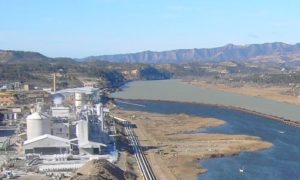
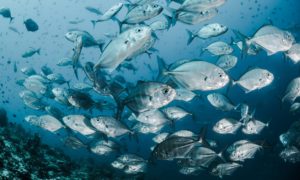

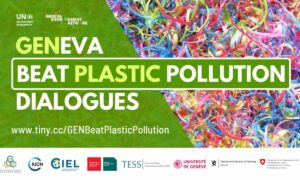
16 Apr 2024
Geneva Beat Plastic Pollution Dialogues
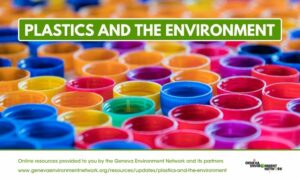
24 Apr 2024
